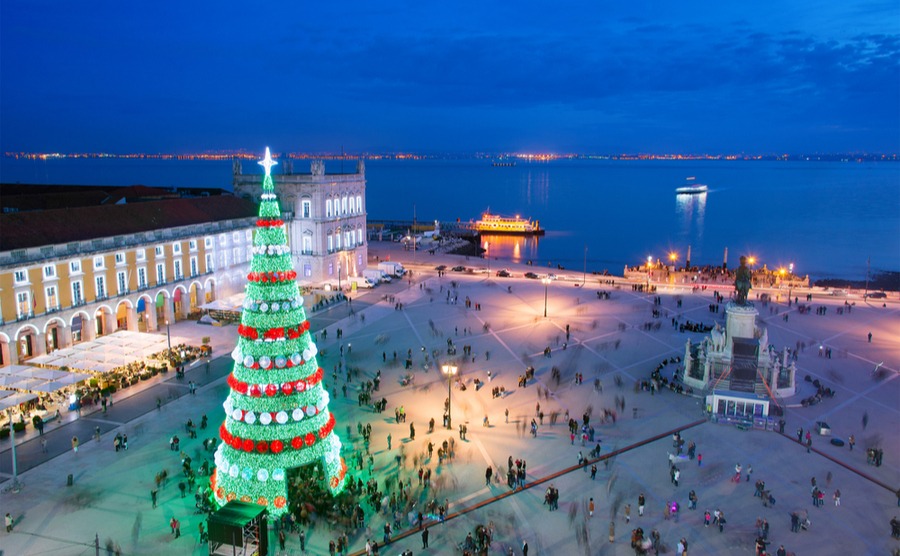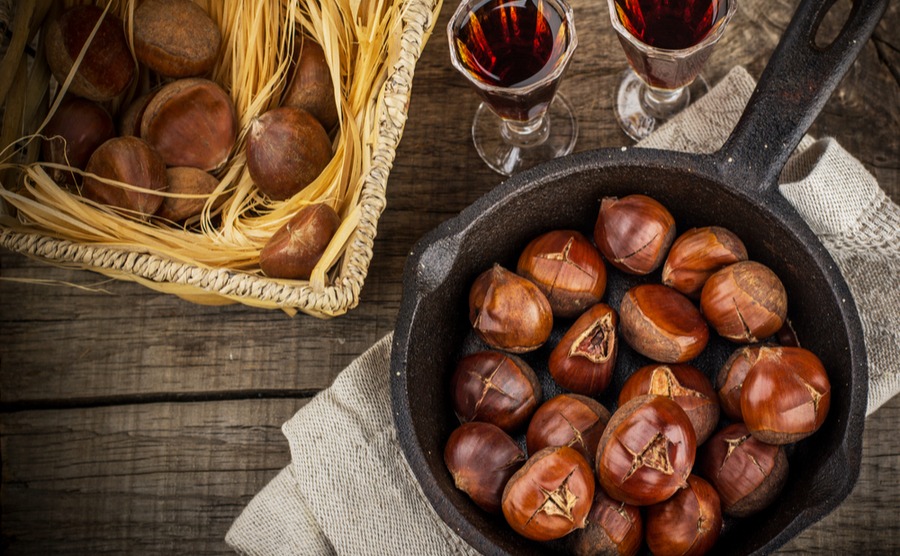Winter in Portugal is vastly different to spending time here during the peak summer months. For some, however, winter is when the country’s slow pace-of-life and mild climate is in the most perfect alignment.
Find your dream home in Portugal via our property portal.
Mild temperatures
The first thing to remember is that there’s more to Portugal than the Algarve. Obviously, the weather can differ significantly between Albufeira and Porto, which is some 327 miles further north. Truly warm winter days are not impossible, but are less likely, as you head further north. Inland central Portugal experiences extremes of temperature and can see frost and snow in the depths of winter. However, for those further south, winter days where the temperature peaks around 20 degrees Celsius are not unusual. Take a look at some properties in the south here.
If you’re about to buy in Portugal, help yourself get the best deal possible with our guide, How to Negotiate Abroad.
Although Portugal is widely seen as a “hot country,” it would be naive to assume there’s no winter. It’s usually short and relatively mild, but it can get chilly, even in the Algarve. This is a reality that causes many Portuguese people to remark that Portugal is not a hot country, but a “cold country with hot sun.” There is certainly some truth to this. However, compared to places like the UK, Portugal in winter can still feel like heaven.

Winter in Portugal is much milder than in the UK.
Winter in Portugal: the best bits
Portugal’s tourist areas take on a completely different vibe in the winter. Some resort towns do feel “closed” to an extent, but there’s a significant permanent population, and Portugal continues to attract tourists all-year-round. Plenty of retirees from northern Europe spend several months of winter in Portugal. As such, there are always plenty of bars and restaurants to choose from.
The atmosphere in these places takes some beating in winter. Owners and staff are typically friendly and relaxed. They’re enjoying only having to serve a comfortable number of people, rather than catering for the summer crowds. Nobody’s in a hurry, and everyone has time to stop for a drink and a chat. Many expats and locals say that this is their favourite time of year.
The atmosphere in these places takes some beating in winter. Owners and staff are typically friendly and relaxed. They’re enjoying only having to serve a comfortable number of people, rather than catering for the summer crowds. Nobody’s in a hurry, and everyone has time to stop for a drink and a chat.
Warm weather isn’t guaranteed during the winter in Portugal. However, you can usually count on a warm week or two here and there, even between December and March. (A personal highlight for me was getting sunburned whilst eating clams on the beach on Boxing Day!)
On warm winter days, it’s hard not to feel like the luckiest person in the world. You can head for a beach that would be thronged with people during the summer, and have the whole thing to yourself. Ironically, it often seems to be expats and winter tourists who take far more advantage of this than the locals. Portuguese natives still tend to wrap up warm in winter even if the temperature is going to hit 23°C! However, for those originating in the UK, there are winter days where the weather would be seen as “peak summer” back “home!”
Winter realism
Of course, it’s important to remember that winter is still winter. When clear skies are overhead, that usually means that warm winter days rapidly morph into cold winter evenings the moment the sun goes down. The sight of shivering tourists outside restaurants is a common one on Portuguese winter evenings!
We can put you in touch with an Independent Financial Advisor, who can help you with all budgetary aspects of your purchase – so that everything goes as smoothly as possible.
The other thing any experienced expat in Portugal will warn you about is keeping warm indoors. Central heating is pretty rare in Portugal, and reverse-cycle air conditioning is good at heating a room, but less good at heating a home. Balancing the costs and practicalities of keeping your Portuguese home warm in winter takes some practice and experimentation.
One useful tip is that plug-in oil radiators can often work very well to warm hallways and other areas the air conditioning struggles to reach. Or, you can do as the Portuguese do, and fill your home with the beautiful throws and blankets that fill all the homeware stores from Autumn onwards.
Start your Portuguese property buying journey here.
Winter events in Portugal
November 11th is St Martin’s Day in Portugal, when people eat warm roasted chestnuts and drink jeropiga, a traditional liqueur. This always feels like it starts the countdown to Christmas.

Roasted chestnuts are a typical part of a traditional winter in Portugal.
Although Christmas is starting to feel a lot more commercial in Portugal now, it does still retain more of a “food and family” focus than you’re probably used to in the UK. There are plenty of Christmas markets, and Portuguese towns make a good effort with decorations. It doesn’t get much more perfect than a walk on a warm beach in the day and another round a chilly, twinkling town at night.
It doesn’t get much more perfect than a walk on a warm beach in the day and another round a chilly, twinkling town at night.
New Year is also a huge deal in Portugal, with the festivities often lasting for a couple of days either side.
Probably the best part of all is the once the Christmas trees come down and the credit card bills arrive, winter in Portugal doesn’t bring on that same sinking feeling that it can in the UK. The chances are you’ll see at least some beach weather again within weeks!

The Portugal Buying Guide is designed to support you through each stage of buying property in Portugal, providing relevant, up-to-date information and tips from Portugal property experts and expats who have been through the process themselves. It helps you to:










